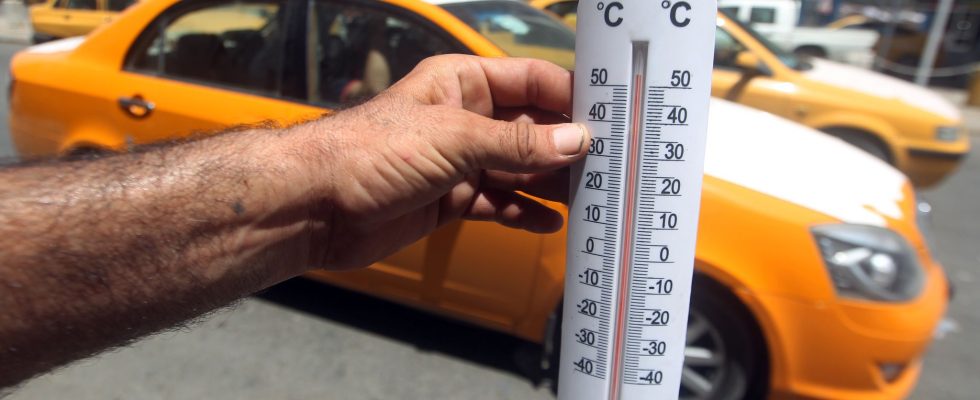Every summer, more and more countries cross the symbolic – and catastrophic – bar of 50°C. This year, Morocco broke its national record: 50.4°C in Agadir on 13 August. The next day, Turkey also passed the course. The previous year, India and Canada had reached what once marked the maximum temperature of the mercury thermometer. Just over twenty nations have already been crushed for at least one day by such a furnace. Less close to the equator and in a so-called “temperate” zone, could France also achieve this? In Europe, the maximum is already dangerously close, since 48.8 degrees were observed in Italy in 2021. For the time being, the French record was set by Météo France at 46 ° C, on June 28, 2019, at Veragues (Herault).
Different heat records depending on the region
As early as 2017, and many times since, the French climatologist Jean Jouzel already warned on television and radio sets: “At the end of the century, we could go towards temperatures – certain days of heat waves, very punctually – higher at 50 degrees, or even up to 55°C”. This data comes froma study carried out by seven French researchers from Cerfacs, CNRS and Météo France, published a few months earlier. It explores the “worst-case scenario”, according to which temperature records could rise by 2 or 3 degrees compared to the pre-industrial era by 2025 if nothing more is done to halt global warming.
In this context, according to the study, if the global average temperature in France exceeds + 3.7° by 2100 compared to pre-industrial aid, temperature records during heat waves could increase by 6.6 degrees to 12.2 degrees, depending on the region. Different areas in France would be more or less affected depending on their geographical position, but also their proximity to the ocean, which moderates the heat peaks on the coast. In summer and during heat waves, weather stations could then record temperatures of up to 54.4 degrees in the north of the country (+ 12.9 degrees compared to historical maximums) and 55.3 degrees in the east ( + 12.2 degrees), against “only” 51.6 degrees in the South-West (+ 9.6 degrees), 51.4 ° C in the Mediterranean (+ 7.7 degrees) and 48.6 degrees in Brittany ( +6.6 degrees).
These nightmarish records, which far exceed 50°C, are nevertheless reserved for the worst-case scenario. In its projections for the metropolis in 2021, Météo France confirmed the 2017 figures by reaffirming that without a reduction in greenhouse gases, France could gain nearly 4°C by 2070-2100, with a rise of 6 degrees in summer.
The 50°C exceeded from 2°C of warming?
More recently, the journal Nature reviewed the conditions of a Europe at 50 degrees. According to a study published in June 2023, “under global warming above two degrees, temperatures above 50°C will be recorded on all continents except Antarctica” by the end of the century. “We find that at all locations temperatures above 50°C would have been extremely rare or impossible in the pre-industrial world, but under human-induced climate change their likelihood is increasing rapidly.” the study of Nature.
If a daily life at 50°C is not on the order of the century in France, the country should indeed end up experiencing this extreme temperature during scorching days within a window of 28 to 75 years, according to all the studies consulted. . “The era of global warming is over, place in the era of global boiling,” warned last July the Secretary General of the UN, Antonio Guterres.
